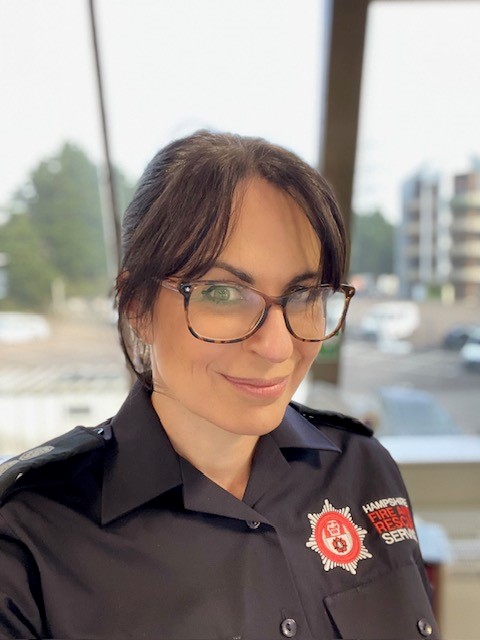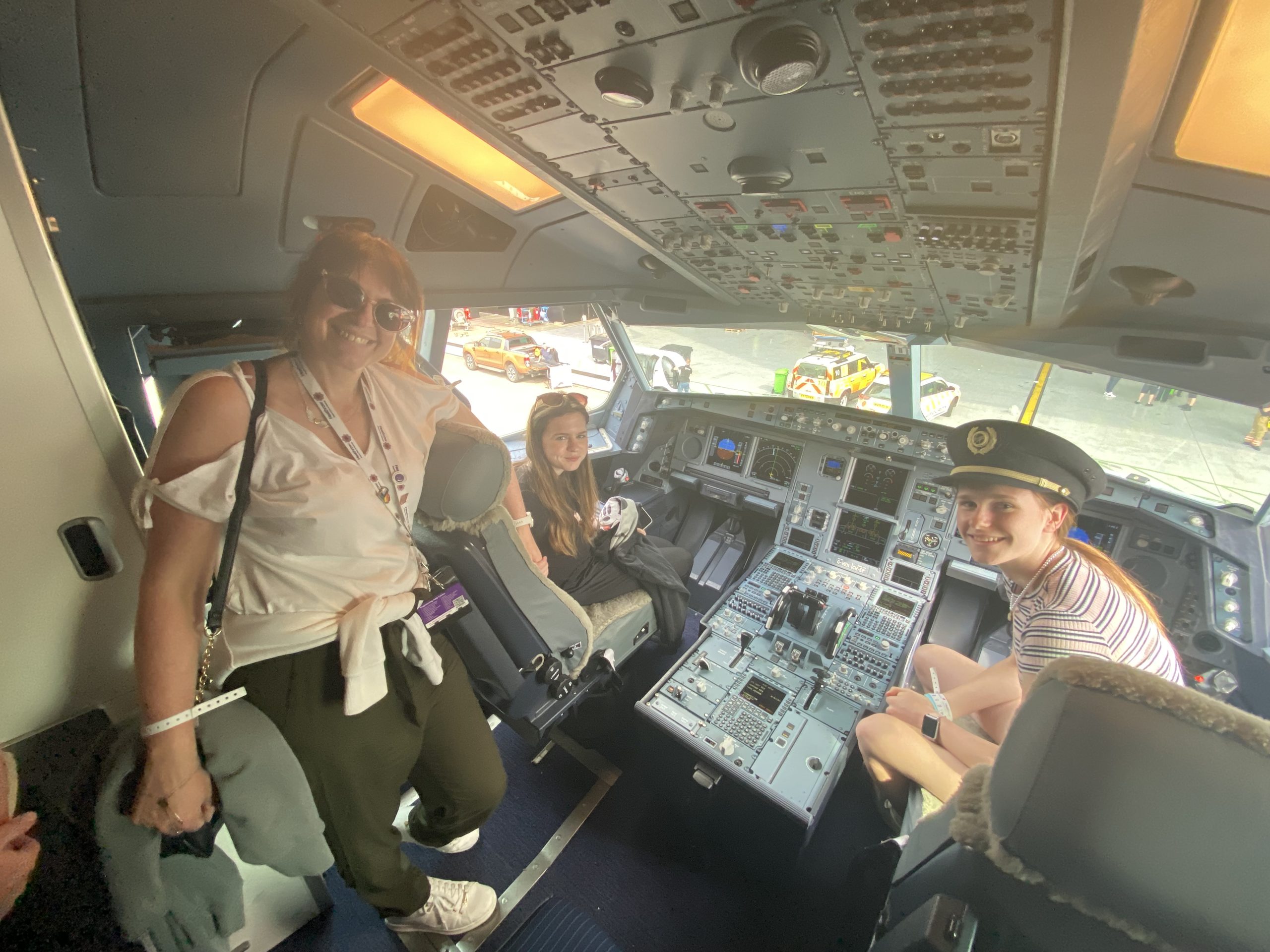We all know how easy it can be to bottle things up, carrying on with our day to day lives and not addressing things that may be leaving us unusually stressed or burnt out.
For Dee Matthews, who works in the fire service for Heathrow Airport as Airport Control Lead, a lot of those challenges came at once and built up to the point they began seriously impacting her mental health.
Here, she shares how we helped her to process everything she was going through and find a way to cope with it all, as well as address challenges she’d faced years before…

“The first time I got in touch with The Fire Fighters Charity was a few years ago, when my dad was suffering from lung cancer,” says Dee, 48. “It was very hard because I ended up doing a lot of his caring, as well as working.
“Because of all my responsibilities, I couldn’t actually get away then but I remembered how helpful everyone was.”
Dee, who previously worked in Control for Hampshire and Isle of Wight FRS before moving to Heathrow, says it was some time after that – towards the end of last year – when she knew she needed to get help.
“Not long after my dad passed away I became Watch Manager, in my previous role before Heathrow, and it was during Covid so it was incredibly busy, not everyone was in to offer support, and the pressure was huge,” she adds. “It just built up and built up.

Donate to support more people like Dee
“I also don’t think I’d dealt with my grief over my dad, and my eldest daughter also has a lot of mental health challenges which is a constant concern to me when I’m not home. I’d completely burnt out.
“I’d also started doing a course for women in minority groups and at the start, you say a lot about yourself. I ended up sharing that I’d been kicked out of home at 15 and was homeless for quite a while. A lot of stuff went on when I was younger and I started talking about that, and realised I’d not really processed how bringing it all back up might impact me.
“I think the combination of everything just tipped me over the edge.”
That September, Dee saw us advertise a Control-specific Reset Programme, which helps participants who work in Control Rooms across the UK to build resilience and mental fitness. She says it immediately jumped out to her.
“I’d been really, really struggling. I’d been off sick with stress, I was in a very dark place, and I got in touch again to see how you might be able to help me,” Dee says.

“I had the initial assessment phone call and they felt I’d benefit from online counselling and also the Reset Programme at Harcombe House.
“I’ve got five kids and work full-time, so finding childcare in that specific Control week proved impossible. The Charity was so helpful when I phoned up to say I couldn’t do that week, and offered me a space on the normal Reset Programme.
“It meant I ended up meeting people with all difference circumstances and experiences. To me, it was as much about the group of people I met there and we ended up keeping in touch afterwards.
“There were three of us sat one evening talking and we’d all lost people in the line of duty. We understood each other’s lives and the pressures of the job.”
Dee adds: “I ended up doing the online counselling around the same time over several weeks, just obviously not the week I was at Harcombe. That, for me, was something I’ve praised ever since.

“I was always one of these people that said, ‘that’s not for me, I don’t want to start talking about everything’, but I got to the point where I knew I needed to try anything. I was in such a dark place, I knew I couldn’t write anything off.
“The counselling was so, so good, it was really helpful. And more helpful than I even realised at the time.”
For Dee, she says both the programme and the online counselling offered tools she could take away, and bring into her everyday life – particularly at work, while dealing with a lot of stress.
“With Control, it’s a real niche job. People don’t understand it unless they’ve done it, they don’t understand the trauma that you can have from listening to a call. It can be just as bad as seeing it,” she explains.
“We’re the first person people talk to and, sometimes, we’re the last. You get really invested and you really want to help, and you can’t always. It can be really hard.”
“Getting rid of the stigma about being able to talk is so important”
Dee Matthews
Dee has also since praised our new 24/7 Crisis Line as a vital resource for all fire service personnel, both working and retired, should they ever feel suicidal.
“I think I would have used it myself at one point,” she says. “I recently attended a prevention of suicide conference and I listened to people there. It stamped home how important it is.
“I have friends in the service who I’ve talked to a lot, and they’ve said they’d have used it too. The importance about talking and getting rid of the stigma about being able to talk is so important.
“Sometimes in this role, you can feel like you have to be tough and not share how you’re feeling, especially when it’s so male-oriented. That isn’t the case and shouldn’t be.”
If you’re feeling suicidal, call our Crisis Line on 0300 373 0896.
If you feel you’d benefit from our health and wellbeing support, you can call our Support Line on 0800 389 8820, make an enquiry online or visit the ‘Access Support’ tab in My Fire Fighters Charity.

